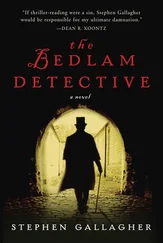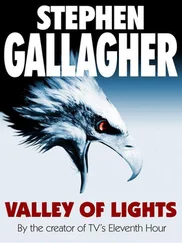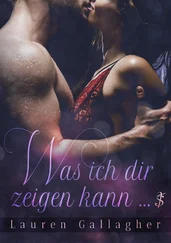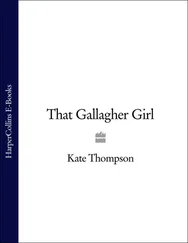• • •
The June heat was grave. First and second squad stood near the clearing barrels, as did three of Saif’s men. Snoop played Game Boy to the side, a black ski mask pulled over his face and bunched under his helmet. The brigade had mandated that terps weren’t allowed to wear masks on patrols, but Captain Vrettos had turned a blind eye to it, leaving it up to the translators themselves. Since the sniper attack, Snoop hadn’t gone outside without the mask. He said Jaish al-Mahdi was hunting him, in both Ashuriyah and the Sudanese neighborhood in Baghdad where his family lived. Without Captain Vrettos’ relaxed policy, he swore he would already have quit.
I studied the crater-eyed faces in American uniforms. A few wore unauthorized patches of a dark scorpion where the Twenty-Fifth’s lightning bolt should’ve been. Everyone called us the scorpion platoon now, even the commander, though I’d insisted on keeping the Hotspur call sign. Many of the soldiers were familiar, but some were not, a result of Chambers’ platoon trades.
We had… six new soldiers? I wondered. Maybe seven. I needed to ask for an updated platoon roster. I thought of Ortiz and Alphabet and tried to form their faces out of the scattered shards of memory but could put together only parts of their portraits, which were different and wrong somehow.
“Gather ’round, killers. Snoop, turn off the game and translate for the jundi s.”
“Okay, LT.”
“Today we’re collecting info on Azhar, better known as Dead Tooth.” I looked for a familiar face and found Washington, fresh from explaining sand niggers to Snoop. “Corporal W, what can you tell us about Dead Tooth?”
“He’s got a dead tooth,” Washington said, earning a few laughs. Satisfied, he continued. “Youngblood punk using his daddy’s rifle.”
Chambers’ pet phrase coming out of my soldier’s mouth irritated me, but I kept it to myself. I asked who Dead Tooth was aligned with.
“Al-Qaeda,” Washington said. “At least he says that. Probably just a pretender.”
As soon as battalion had sent a photograph of the new insurgent leader, I’d recognized the younger cousin who’d picked up his family’s fasil payment in the spring. Same long face, same thin mustache, same brown, crooked teeth filling his mouth. Captain Vrettos had sighed deeply when I’d mentioned the history, then charged our platoon with capturing him because of my “superb diplomatic skills.”
“Reports say he’s been hiding around the Sunni Strip, in the northwest. Write this down, guys.” I stopped for a beat before continuing. “That’s where we’re going. The mosque blocks.”
“Fobbits got nothing else?” Chambers asked from the back. His voice had acid in it. “Why have an intel shop if they’re only gonna tell us what we already know?”
“Above my pay grade,” I said. “Let’s focus on what we can control.” I finished the patrol brief, reminding them that Dead Tooth was wanted in connection with the increase in IED attacks. After asking if there were any questions, I paused. I hated this part of the combat ritual. “Hotspur, you know the deal. Be the scorpion,” I said.
“Be the scorpion!” they echoed.
We locked and loaded and filed to the front gate, Dominguez walking point yet again, zip cuffs dangling from his vest like a necklace of plastic ears. Another platoon’s soldiers occupied the Humvee and sentry shack, a wigwam of ammo crates and sandbags. Some of the guys had wanted to name the shack after Alphabet, but it hadn’t taken.
American soldiers pushed into the unknown once more. We moved with edge, adrenaline juicing our blood, a hyperconsciousness the civilized world could never replicate. If hajj was going to get any of us, he’d have to earn it. There would be no more shots in the dark on the unsuspecting. Over the past few weeks I’d grown proud of what we’d once considered routine. A platoon of infantrymen, young, silly, fierce men from the country and the ghettos, marching into the outposts of hell because no one else would. And I went with them. They’d proven themselves now that things mattered. More than anything, I needed to prove myself worthy of being their lieutenant. Their LT.
A storm brewed as we pushed west. The trash-strewn streets were empty save for dust cyclones spinning at corners like little orange pinwheels. Most Iraqis stayed in the shade during the cruel afternoons, but the storekeepers and porch denizens usually remained firm. Even they had fled the elements today. As we walked, Ashuriyah turned into a biblical van Gogh, the wind painting everything it touched in dizzy strokes of churning earth.
“Simoom season,” Snoop said.
“What’s that?” I asked, wiping dirt from my lenses.
“The poison wind.”
As difficult a time as I was having staying vertical, our interpreter found it impossible. He had one of those angular, bony bodies that only looked natural leaning on something. Wobbling around with his crooked mask and a plastic rifle tucked under an elbow, he resembled a hungover bank robber. Batule, now the radioman, shook his head at our terp and laughed. I smiled and tapped Snoop lightly on the helmet.
We shifted north into the mosque blocks. A small high school building made of granite lay at the intersection. Closed for the summer, chains wrapped around its gate like a metal python, rust gnawing away at the padlock. Big blocks of spray paint covered the gate and parallel walls.
“Jaish al-Mahdi graffiti,” Snoop said. “Telling young Shi’as to defend their homes and families.”
We crossed through a long thistle meadow. The houses to the east were dilapidated clay mounds, but the ones to our west, nearer to the great mosque, were made of sun-dried brick and sported tall, spiked gates. Dark bullet scars marked the walls of both neighborhoods.
Halfway through the meadow, I stepped into a puddle of mud hidden by weeds, turning my tan boots the color of ground coffee.
“Watch your step,” I told the soldier behind me. It was Ibrahim, one of the new guys Chambers had traded for. He had a reputation as a kiss-ass, but he’d been quiet and dependable with us, if not entirely self-motivated.
“How are things?” I asked. “Must be weird switching.”
“Good, sir.” He pushed a pair of army-issued glasses up the bridge of his nose, the type of chunky, plastic-rimmed lenses worn by hipsters in Brooklyn. “I’m enjoying the new start.”
He walked tall but with the type of shiftlessness large men had when they’d never gotten used to their size. He seemed soft but considerate, and asked about my feet. I said they didn’t blister anymore, they’d finally hardened, though I left out my daily moleskin and baby powder treatment. I remembered a conversation from months before, in a leadership meeting, and asked if he’d had trouble with his old platoon because of his religion.
“Kind of. But it wasn’t because I’m Muslim. Some of the guys were always trying to get me to translate, but I don’t speak Arabic. I mean, I’m from Buffalo.”
There went my next question. It would’ve been nice to have another fluent speaker to practice with. I asked how he felt about Hotspur. He said things were fine. His team leader was Dominguez, so I trusted they were. Then he said he was thankful Staff Sergeant Chambers had intervened on his behalf. I wasn’t so sure about that part. I told him to come see me if anything came up, and pushed forward in the formation.
We emerged from the meadow onto a yellow wedged avenue known as the Sunni Strip, running east — west and connecting two larger roads. Even the Iraqis didn’t know how a pocket of Sunnis had come to settle in this part of Ashuriyah, so near the Shi’a mosque, so far from their larger enclaves in the south of town and the villages out west. During the sectarian wars, the area had been ground zero for local terror, complete with kidnappings, gang rapes, and a torture house where a medieval rack was recovered. Somehow, some way, the Sunni Strip had held. To the northwest, a mile away, the minaret tower loomed through the orange haze, spirals of stone crested by an Ottoman dome older than the flag on my shoulder. To the northeast, I could just make out the stone arch that served as both entry and exit to Ashuriyah.
Читать дальше




![Ally Carter - [Gallagher Girls 02 ] - Cross My Heart & Hope To Spy](/books/262178/ally-carter-gallagher-girls-02-thumb.webp)
![Ally Carter - [Gallagher Girls 01] I'd Tell You I Love You But Then I'd Have to Kill You](/books/262179/ally-carter-gallagher-girls-01-i-d-tell-you-i-lo-thumb.webp)






